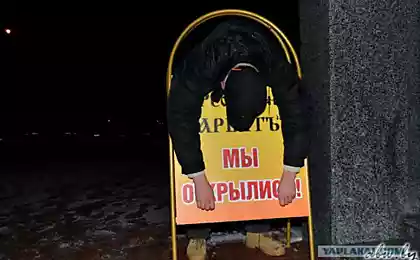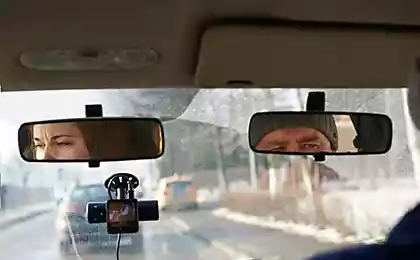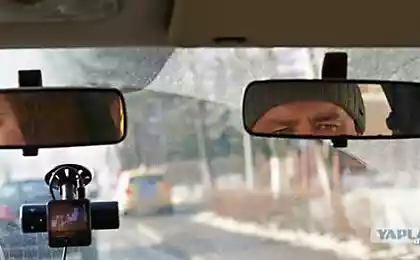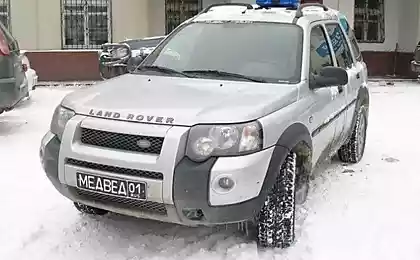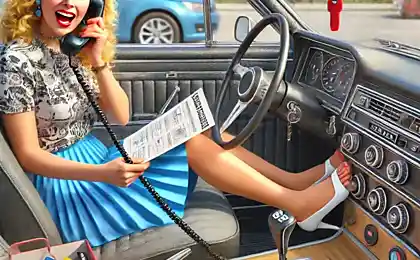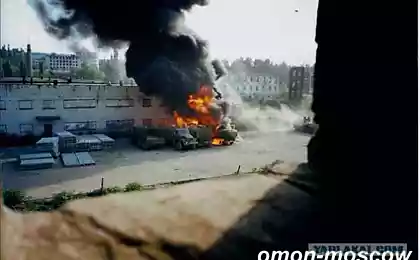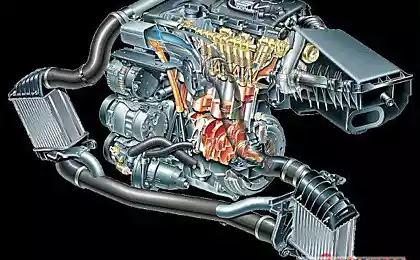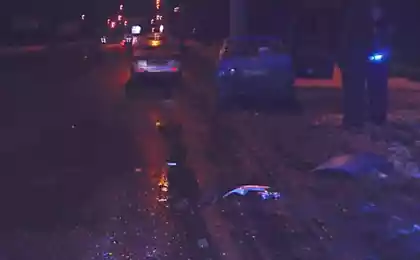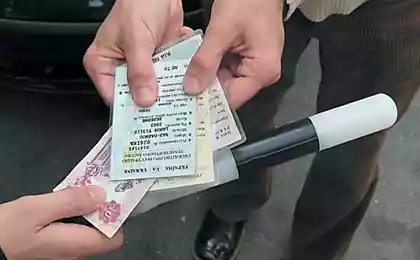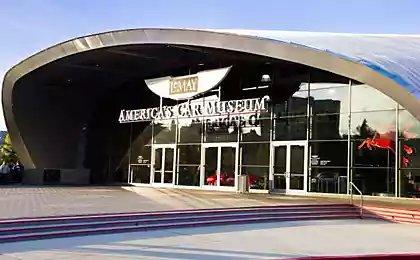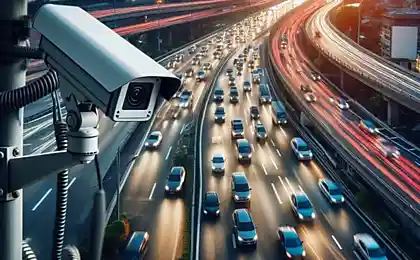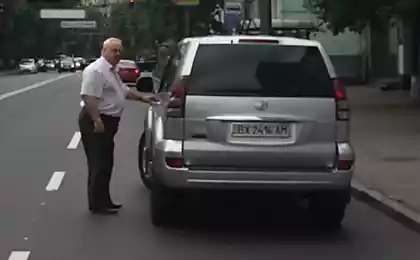324
Mistakes of drivers when communicating with traffic police

1. Do not pay attention to the presence of the inspector's breastplate.
The breastplate is a mandatory attribute of the inspector's form, and therefore, in his absence, you may suspect the inspector of amateur activity.
2. When referring to the inspector, use the expressions "Commander" or "Chief"
As soon as you take the position of “Civilian boss” or “Commander”, the conditions will dictate to you, and it will be difficult to change the situation. The right attitude is to talk to the inspector on an equal footing. He should introduce himself, and if you did not hear, there is nothing shameful in clarifying and then referring to him by name. Not by rank, but by name. Depending on your age and upbringing, it does not hurt to add a patronymic.
3. Get out of your car when you are not asked to, and even when you are asked to.
There is no such duty as “get out of your car”. And in the Order of the Minister of Internal Affairs Administrative Regulations No. 185 (PDS No. 186)
70. The employee has the right to offer the road user:
(a) exit the vehicle in cases of:
the need to eliminate technical malfunction of the vehicle or violations of the rules for the carriage of goods;
presence of signs of intoxication (paragraph 3 of paragraph 126 of this Administrative Regulations) and (or) a painful condition;
for carrying out in the presence of the driver (vehicle owner) reconciliation of numbers of units and units of the vehicle with records in registration documents;
for personal inspection, inspection or inspection of the vehicle and cargo;
when his participation in the implementation of procedural actions, as well as assistance to other road users or police officers is required;
when his behavior poses a threat to the personal safety of the employee;
(b) move the vehicle to another designated location by the staff member if:
the presence of the vehicle in the place of its stopping creates a threat or interference to other road users;
the presence of an employee on the carriageway when contacting the driver in the vehicle creates a threat to the personal safety of the employee;
(c) take a seat in a patrol car or enter a service room when his participation is necessary for the processing of procedural documents.
(this document guides the inspector) provides a list of cases in which the inspector is allowed to ask the driver to get out of his vehicle.
Conclusion: Inspector, not only to demand, he even has the right to ask you about it only in the cases specified by the Law. A "Please" is not a "Legal Requirement", and therefore you are not obliged to comply with it.
4. Do not pay attention to where and how the office car of the inspector is.
According to the instructions, the inspector must use only a service vehicle and it must be well-observed by road users. If the inspector hid it in the bushes or behind the structure, then he thereby violates the requirements of the Instructions.
And if the official car is in violation of traffic rules (P.12 "Stop and Parking") and without flashing beacons, the inspector, if you wish (and not without the help of the Prosecutor's office), can be held responsible for this violation. Few drivers know that traffic police officers, on a service car without flashing beacons on, are simple road users, and therefore can be held responsible for traffic violations.
5. Do not block the doors of your car.
Lock the doors and turn on the recorder.
There are cases when the driver of the "ham" (talking disrespectfully to the traffic police), pulled out of the car and "punished" for such behavior. And so advice: talk to police officers respectfully and be sure to block the doors before that!
6. You let go of the door windows completely.
In the case when the driver is competent, and even records the wrongful actions of the inspector on the recorder - the inspector can grab the recorder through a fully open window of the car. And then... further events will develop only at the request of the inspector.
7. You do not use a recorder or video recorder.
To use the recorder and DVR you have full legal right. A police officer is a police officer (now a police officer). The concept of “personal life” does not apply to him. It is governed by the "Police Act" whose activities are carried out in accordance with Article
8. Openness and publicity.
Furthermore, according to article 25. The employee must not prevent the use of video and sound recording equipment by a road user, unless it is prohibited by law. The existence of a prohibition shall be notified by the staff member to the recording user.”
The traffic police management has repeatedly stated that the driver, in order to prevent or prevent illegal actions of traffic police officers, is allowed to use a recorder or video camera.
Put a tape recorder in the inspector's face.
Remember! The situations on the road are different. In one case, in the middle of the city, the presence of a recorder can remind the inspector of good manners when communicating with the driver. In another case - at night, on the track, your recorder can be regarded as an attempt to escape with all the ensuing consequences.
And so advice: don't put a tape recorder in the inspector's face. Just put it in the chest pocket of your shirt. While the inspector will be heading to your car - tell the recorder the date, time and place of stop. Remember that the recorder is not a shield from the inspector, but a small insurance for a competent driver.
An illiterate driver, and even climbing on the horn - the inspector will put in place, and no talk about the fact that I, somewhere read that I can use a recorder - such a driver will not help.
9. You're not interested in the reason for the stop.
Find out the reason for the stop!!
Paragraph 63 of the Administrative Regulations gives a full list of reasons for stopping your car.
The grounds for stopping the vehicle by the employee are:
established visually or recorded using technical means signs of violations of requirements in the field of road safety;
availability of data (orientations, information of the duty officer, other outfits, road users, visually recorded circumstances) indicating the involvement of the driver, passengers in the commission of a traffic accident, crime or administrative offense;
availability of data (orientation, information of operational reference and search records, information of the duty officer, other outfits, road users) on the use of the vehicle for illegal purposes or grounds to believe that it is wanted;
the need to question the driver or passengers about the circumstances of the commission of a traffic accident, an administrative offense, a crime of which they were or are witnesses;
the need to involve a road user as an understandable person;
execution of administrative and regulatory actions;
the need to use a vehicle (paragraph 5 of paragraph 4 of this Administrative Regulation);
the need to attract a driver to assist other road users or police officers;
carrying out on the basis of administrative acts of the heads of internal affairs bodies, management bodies of special measures related to the inspection in accordance with the objectives of the relevant special measures of vehicles, persons moving in them and transported goods;
verification of documents for the right to use and drive the vehicle, documents for the vehicle and the transported cargo, as well as identity documents for the driver and passengers (only at stationary traffic police stations).
The inspector must have an appropriate order on paper, with which you have the full legal right to read.
Also, in order to find out the presence of a special operation, you can call the traffic police helpline (the inspector must name him). It should also be remembered that, a clear sign of "Special Operation" is the presence of police officers who stopped you - bulletproof vests and assault rifles.
10. You do not need to show your official ID.
The DPS inspector is a police officer. He, as well as all other police officers, is obliged, on request, to present his official certificate. If the inspector refuses to do this, know that before you werewolf in epaulettes (dressed bandit). Immediately lock all doors, raise windows, call "02" "112" and declare the identity of the employee dressed in the uniform of the traffic police, without the appropriate ID.
11. Do not require to present the certificate in full form.
Carefully read the inspector's certificate
The traffic police officer is obliged not only to show you the presence of the certificate, he is obliged to disclose it so that you can understand who you are talking to (name of the inspector, his special rank, unit). This information will be useful to you when appealing against illegal actions of the inspector. In addition, you just need to know who exactly you give your documents (suddenly you will not count them later, everything happens on the road!).
12. Don't ask me to hold your ID any longer.
If the inspector revealed his ID to you and held for 3 seconds, it is not considered that he presented it to you! The inspector is obliged to give you the opportunity to get acquainted with his identity card in detail, and rewrite all his data (if you wish).
13. Trying to take the inspector's ID into your own hands.
Under no circumstances attempt to do so. Just ask the inspector to hold your ID for as long as you need it.
14. Hand over all your documents at once.
Don't do that!!! It is better to ask the inspector what documents he wants to see, and hand them over one by one. Otherwise, if you give all your documents to the inspector at once, it will not be difficult for him to declare that you have not done something.
Council: Show on camera or voice on recorder what exactly you give to the inspector.
15. Do not hand over your documents to the inspector.
Be sure to hand over your documents to the inspector. He must verify their authenticity.
16. Get out of the car when you are asked to open the hood to check the body numbers with those in the documents.
You do not have to point the inspector to the place where the body numbers are knocked out or wipe them with a cloth if you can not see. It's the inspector's job. Just open the hood from the cabin of your car, sit and wait for the inspector to do his job.
17. Open the trunk at the request of the inspector.
Ask the inspector, “Are you asking me to open the trunk or are you asking me to?” Know that there is a huge difference between these two words ("Please" and "Demand").
You are not obliged to fulfill the “Please” of the inspector, but to demand “Open the trunk” – the inspector has the right only after drawing up the protocol of the inspection in the presence of 2 witnesses (require the preparation of the “Inspection” protocol). And therefore, often the inspector resorts to the trick: “I asked, I was shown” – this is so that in case of a complaint, not to be accused of making an illegal search.
Advice!
Don't get out of your car. Asking the inspector to get out and open the hood or trunk is usually only a reason to pull you out of your car. Here there is a psychological technique “Game on someone else’s field”. If you get out of the car, it will be difficult for you to orientate where the inspector is right and where not.
18. Humiliate the inspector, or vice versa, you are smiling.
Don't be rude or suck up!
Inspector, this is a man just like you, only now he's wearing uniforms. Don't be afraid of him. To be rude and rude. Learn to respond calmly to the inspector! If you're embarrassed by his uniform, imagine he's wearing it inside out. Then everything will fall into place!
19. Do not pay attention to whether the inspector introduced himself to you.
Paragraph 20 of the Administrative Regulations states:
“When addressing a road user, the staff member shall introduce himself, giving his or her position, special rank and surname, and then briefly state the reason and purpose of the application.
In case of appeal of citizens, the employee, having fulfilled the same requirements, is obliged to listen carefully, within his competence to take measures on their applications or explain where to apply to resolve the issue.
In all cases of restriction of the rights and freedoms of a citizen, the employee is obliged to explain to him the reason and reason for such restriction, as well as his rights and obligations arising in this regard.
The Instructions contain a full list of duties of the inspector, for the failure of which he, if you wish, may be liable. “Introduction” is one of his first duties.
20. Answer all the inspector's questions.
If the inspector asks you “Where are you going?”, “Where are you going from?”, “What sign have you recently passed?” or “Have you read traffic rules, the item is this?” Ask the inspector, “Inspector, do I have to answer your questions?” If the inspector answers “Yes,” ask the inspector to refer to the law.
Remember! According to the Constitution (Article 51) You have the right not to answer questions from a police officer.
In case of any ambiguity or unlawful actions of the inspector, you do not call the traffic police service
The traffic police helpline number can be asked from the inspector, it is also displayed on their service car.
Remember! The traffic police service immediately respond to any violations of the law, and it receives calls around the clock.
Bonus. Do not pay attention to whether all the documents were returned to you and in what condition they were.
Check your documents!!!
Be sure to check the availability of all documents, after checking them by the inspector. In the event that you do not count anything, immediately call "02" and report theft!
